


MHFA England director and youth lead Caroline Hounsell talks to 10 Mental Health First Aiders and MHFA instructors on how they use MHFA in their communities.
Time to Talk Day really is what it says on the tin – an annual reminder that talking about mental health is not something to be shied away from, in fact we should all be doing it. This year the message is simple – have a conversation with someone about mental health wherever you are, whatever you are doing. But is it really that easy to talk about our mental wellbeing?
As a mother, wife, daughter, friend, Mental Health First Aider and practicing psychotherapist I have certainly seen first-hand the positive power of talking. But I also believe the most helpful conversations are based around the principles of non-judgemental listening and communicating – skills which I have spent much of my working life helping people to feel confident using, in their places of work, in their communities and with family and friends. These are the skills taught on every Mental Health First Aid (MHFA) course, and which are evidenced to increase people’s confidence to start what might be perceived as a difficult topic of conversation.
In celebration of Time to Talk Day, I asked ten inspirational people from very different walks of life to share how they’re using MHFA to break stigma and get others talking about mental health.

Following an illustrious career playing for top clubs and international rugby for Scotland, Nick is now advocating for improved approaches to mental health in the game.
Explaining his motivations Nick tells me, “Last year I trained as a Youth MHFA instructor because I wanted to help more adults working with young people in sporting environments to be able to support their mental health, as well as their physical health. Throughout my career in rugby I’ve seen young men struggling with poor wellbeing and not feeling they have someone to go to for help. MHFA is a powerful tool that coaches can use to help ensure they’re able to create a supportive environment where people are able to come forward. We all have mental health, so even if a person’s experiencing a patch of poor wellbeing, as opposed to a more serious mental health issue, having that outlet close at hand can make all the difference.”
With his playing days behind him, Nick has since taken up a role as head of rugby at Uppingham School in the East Midlands, putting his MHFA skills into action as a coach and teacher.
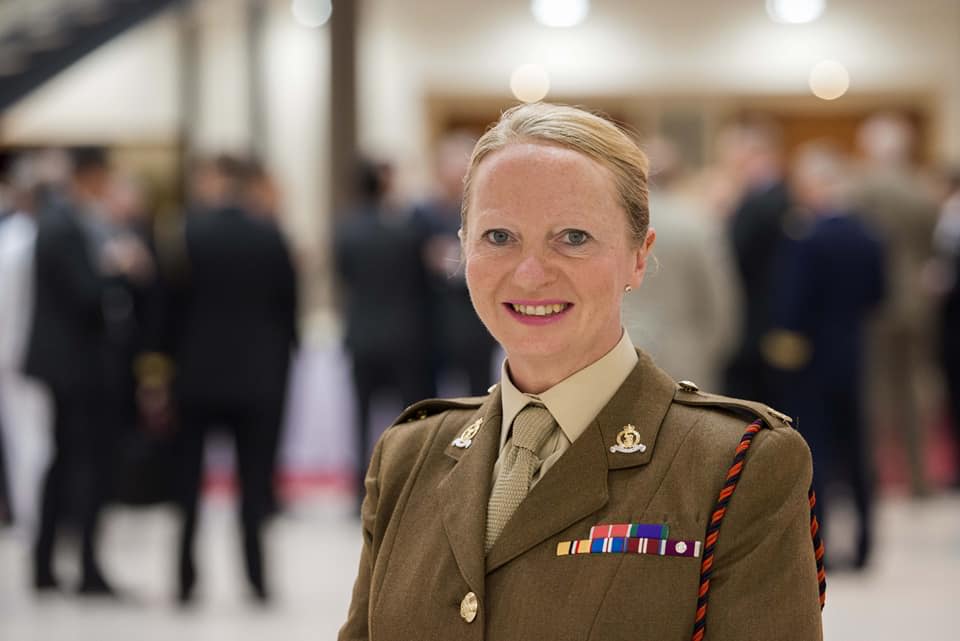
Last year Pauline was awarded an MBE in recognition of her selfless work as an advocate for mental health initiatives in the military. As part of this, she delivers Armed Forces MHFA training to serving personnel, veterans and their families.
Discussing her work, Pauline tells me, “Armed Forces MHFA is a version of the Adult MHFA course which has been tailored to the experiences of those in the military. We know for example that long periods of time away from family during service, exposure to high stress situations, and difficulties adjusting between military and civilian life can all have an impact on the mental health of those in the Armed Forces. This course ensures that people in these settings have an awareness of the associated mental health issues, and have the knowledge and confidence to help on a first aid basis. Whether in training, out in the field, or post-service, MHFA skills are something I want to see present in all Armed Forces communities."
"This training is one important measure we can take to ensure serving personnel, veterans and their families are properly supported. However, it's clear that MHFA also has the potential to benefit the wider community in supporting other frontline professionals including police officers, fire fighters and paramedics."

Stuart is pioneering the introduction of MHFA in the outdoor adventure industry. An experienced tour leader, he works with expedition providers to deliver MHFA courses, and campaigns to make MHFA compulsory in the outdoor education industry.
He explains to me, “I’ve always considered adventure to be instrumental in both my recovery from mental illness and the continued management of my mental health. That said, entering extreme environments can present challenges to mental as well as physical health, as we experience culture shock, and adjust to new settings where we’re removed from familiar support networks. Facing the unexpected can also be a trigger for mental health issues – when cave diving in Belize, for example, I was able to use my MHFA skills to support a young man experiencing a panic attack after a shark popped up out of nowhere. It’s scenarios like this that convince me that all expedition leaders would benefit from learning MHFA.”
For his next adventure Stuart plans to walk the length of England in May, from Hadrian’s Wall to the English Channel, delivering MHFA courses en route.

Natasha is an author and mental health campaigner working in schools, colleges and universities throughout the UK and trained as a Youth MHFA instructor in 2015.
She tells me that, “Sharing MHFA skills to help adults support young people is something I’m passionate about, but as a Mental Health First Aider myself, I use these skills on a regular basis too. Once for example, at a black-tie event I found myself talking to someone about their experience of a recent divorce and recognised that they were describing the symptoms of depression. Using the MHFA action plan, I knew to listen non-judgementally and was able to advise on some self-help techniques and sources of useful information. Just as they helped me that evening, MHFA skills are something accessible that anyone can use as a framework for talking confidently about mental ill health and offering support.”
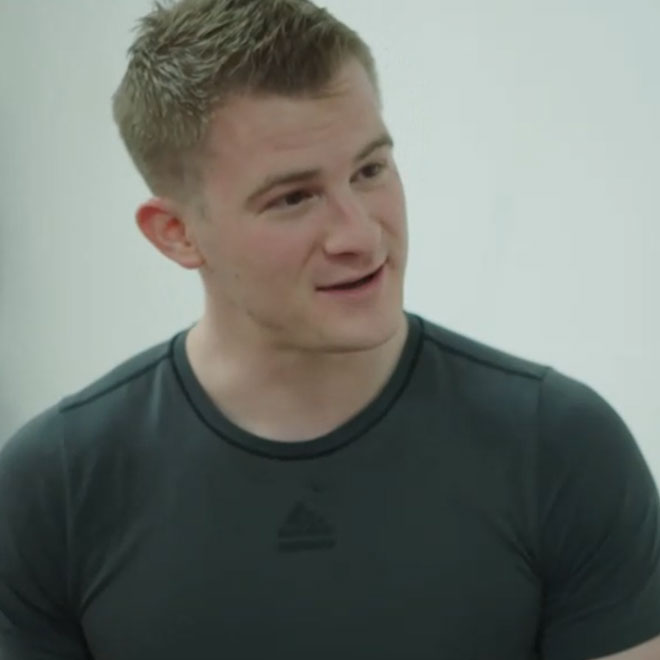
After experiencing work-related mental health issues in his first job as a radiographer, Sam’s recovery led him to a greater awareness of the positive impact of exercise on his mental health. Feeling that a haze had been lifted, he began a new career in fitness, a job he had always wanted to do.
Discussing the relationship between mental health and physical health in his work Sam explains to me, “Sometimes, people look at those in the fitness industry, in peak physical fitness, and think they are the epitome of health. But we all have mental health just as we do physical health and one cannot succeed without the other. You might look great on the outside, but really not feel it on the inside. Why should mental health be treated differently? There is a taboo that it is a weakness to talk about mental health, but there is no shame in talking about diabetes, for example. This taboo is particularly damaging among men, who are less likely to talk about their feelings and more likely to die by suicide.”
Alongside his role as a gym manager, Sam now works as a Mental Health First Aider to be able to offer support to clients and colleagues in his workplace.
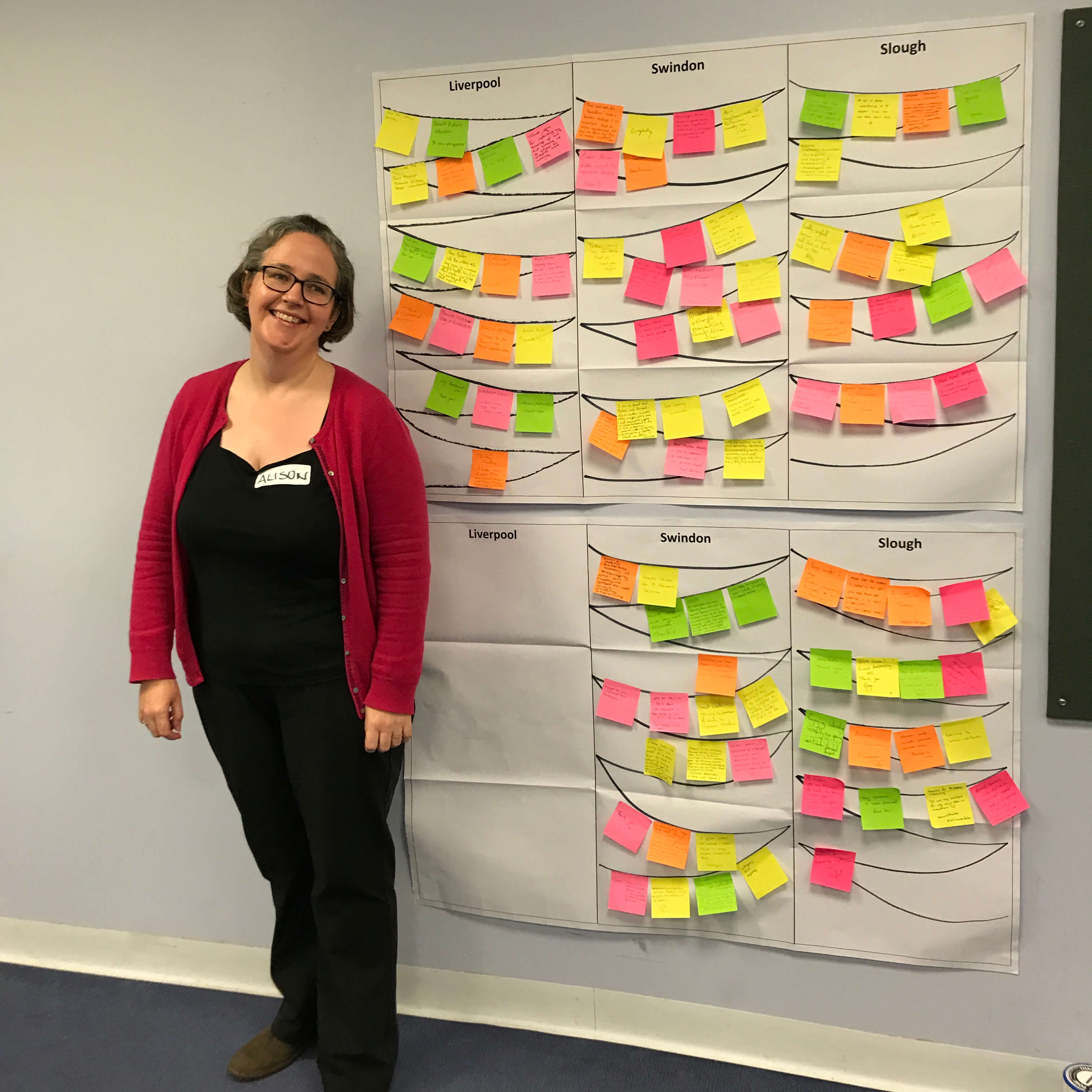
As one of seven MHFA instructors trained up as part of WHSmith’s wellbeing strategy, Alison and her colleagues are working hard to train the organisation’s 1,100 line managers in MHFA.
Alison revealed to me, “After a close friend took their own life I wanted to understand what I could have done differently. At the time, I was concerned that if I spoke to my friend about how he was feeling I might have made things worse. I now know this not to be true. A meaningful conversation, asking the right questions and listening, might have helped. Over the past eighteen months I’ve been leading our Mental Health Frist Aid programme at WHSmith because I want someone in all of our teams to have the knowledge and the confidence to have those all-important conversations. Giving our managers these skills is key to this, and is helping us to create mentally health, supportive working environments throughout the organisation.”
WHSmith is now close to achieving its goal of matching the numbers of physical first aiders and MHFAiders, demonstrating its commitment to parity of esteem between mental health and physical health in the workplace.
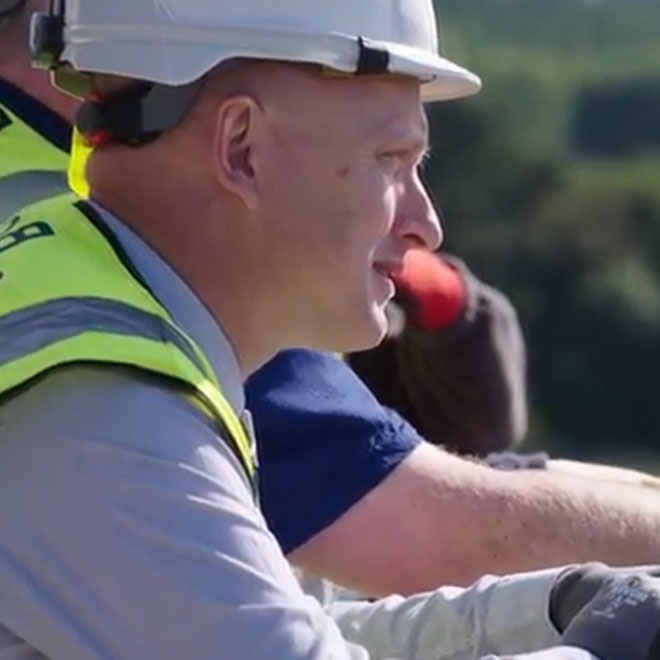
Through Mark Blundy, Bowmer & Kirkland are one of the organisations in the construction industry leading the way on improving approaches to mental health.
Giving me the background as to why his organisation is encouraging men to talk, Mark tells me “Our industry is particularly vulnerable to mental ill health - transient working patterns, extensive travelling, and time spent away from home can all have an impact. Male dominated working cultures have also traditionally been linked with difficulties discussing mental health, with men statistically less likely to report an issue. Many firms are working to address this and we’re now using MHFA as a tool to create an environment where employees feel able to come forward to talk about their mental health and ask for support.”
Under Mark’s guidance Bowmer and Kirkland has developed a programme of wellbeing training, including MHFA courses, that all supervisory staff are being asked to participate in, and in the coming year he hopes to make MHFA training more widely available.

Leyla has over 15 years’ experience implementing, mental health, diversity, inclusion and equality practices in different universities and has been an MHFA instructor since 2013, recently specialising in Higher Education MHFA.
Talking about her work in Higher Education she explains, “Academic environments and the associated heavy workloads can be a source of stress for both staff and students. By training people in MHFA we not only give people the tools to support others, but the self-care elements of the course also help people think about supporting themselves. It’s often easy to forget about the little things we can do that can make a big difference to help us build resilience into our lives. So, as well as having a conversation with others on Time to Talk Day, it’s also important to have that conversation with ourselves and to reflect on how we support our own wellbeing.”
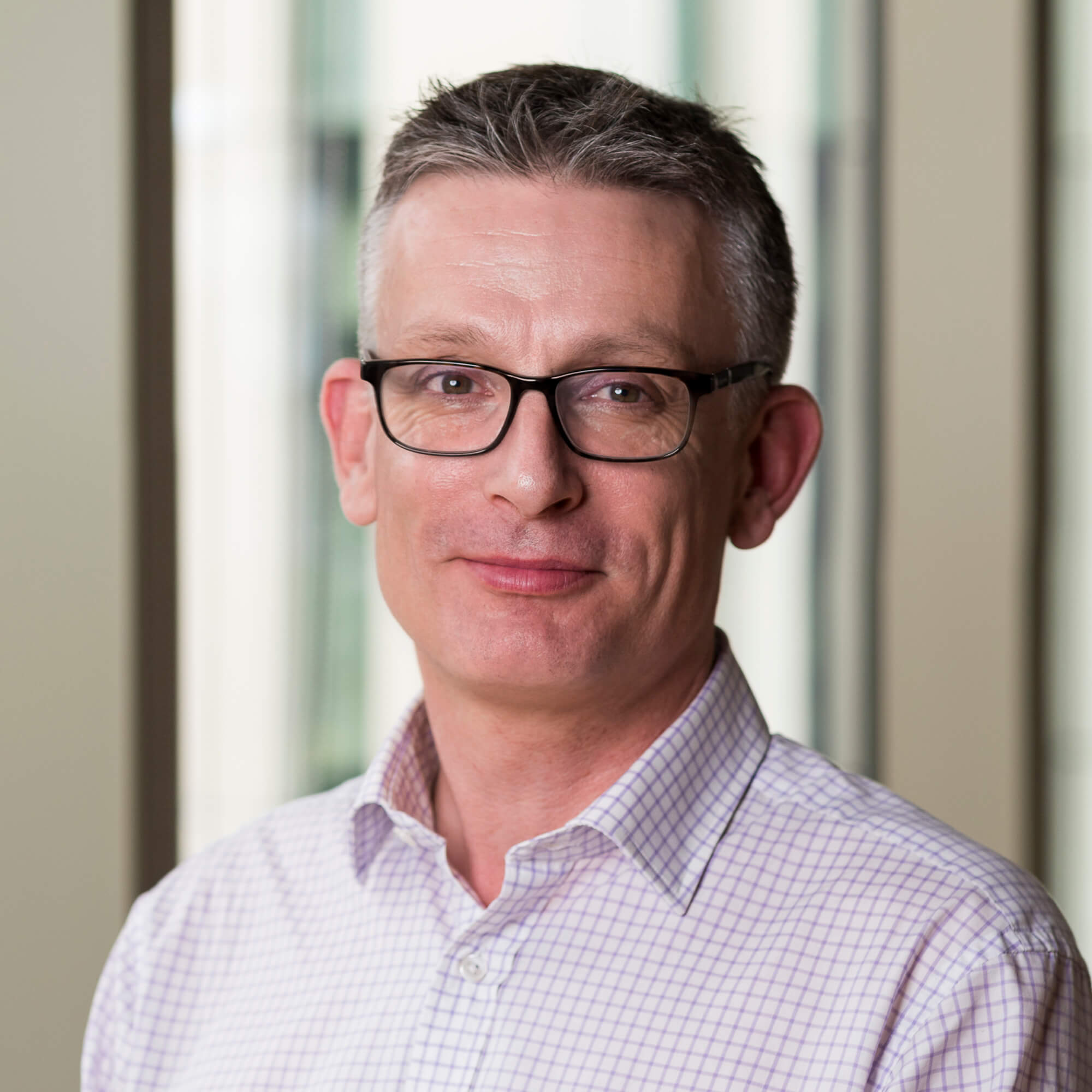
Richard spent 20 years as a City employment lawyer before joining byrne·dean, workplace facilitators and trainers, leading their work in mental health.
Richard tells me, “I help companies to understand what is happening at a human and emotional level. It is the key to performance in our knowledge driven workplaces. Without an understanding of mental health, and how to promote good mental health and know the warning signs and be able to talk about developing problems, we cannot hope to make best use of our primary tool, our brains. Clearly also its about being human and caring for each other."
"As well as MHFA training, a lot of what I do is in workplace conflict resolution. So often conflicts involve mental health issues in some way or another. Conflicts are best resolving by listening, a key MHFA skill, and it’s by breaking stigma and creating supportive workplaces that I believe so many of these kinds of disputes can be avoided and eliminated from working life in the first place. This is why I’m passionate about using MHFA training to make sure organisations in fast-paced, high-pressure industries are equipped with Mental Health First Aiders able to spot the signs when someone is struggling and have that supportive conversation.”
Richard works primarily with clients in investment banking, media and technology and international professional services firms, and also sits on the steering committee of the Lord Mayor of London’s ‘This is Me in the City’ campaign to reduce the stigma around mental illness.
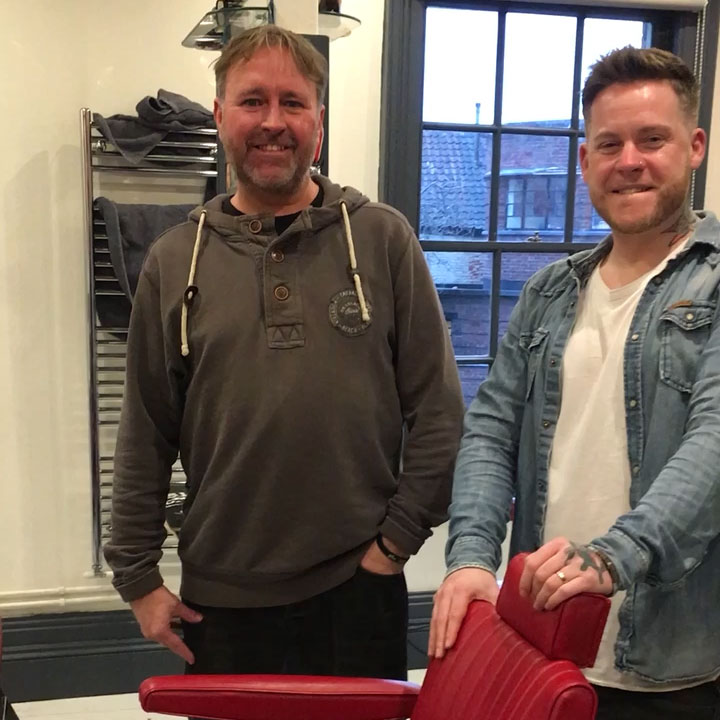
Oz has worked as a consultant for Time to Change, Mind and Rethink Mental Illness and co-founded Norwich-based social enterprise The Outsiders in 2013 and the 12th Man Project in 2015.
Discussing his work on the 12th Man Project he explains to me, “This initiative aims to get men talking more about mental health and encourages them to be the ‘12th man’ for their families, friends and colleagues, echoing the way that a crowd gives that extra bit of support to a football team. As part of this campaign, I trained 11 barbers from a barbers collective in Norwich in Mental Health First Aid, delivering the training in a shop after hours and whilst hair was still being swept up! Truly a great advert for the idea that mental health really is something you can talk about anywhere and at any time.”